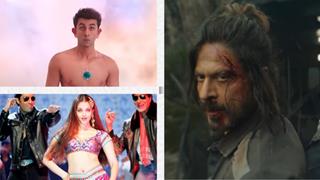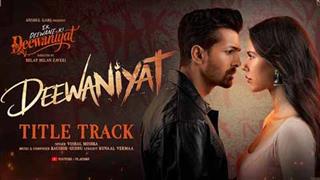Director: Milap Milan Zaveri
Rating: **
This Diwali, Bollywood offered audiences a box office clash: the horror-comedy Thamma and the romantic drama Ek Deewane Ki Deewaniyat. After sitting through both films, it’s clear which one actually delivers on thrills—and spoiler alert: it’s not Thamma that ends up being more terrifying, at least in terms of cinematic quality.
Directed by Milap Milan Zaveri, Ek Deewane Ki Deewaniyat revolves around Vikramaditya Bhonsle (Harshvardhan Rane), a high-profile politician who instantly falls in love with Adaa (Sonam Bajwa), a popular actor. What follows is a relentless pursuit, with Vikramaditya determined to marry Adaa at any cost. The narrative quickly becomes a confusing blend of Tere Naam and Raanjhanaa, but stripped of their emotional depth, leaving a hollow story that survives mainly as fodder for Instagram reels of jilted lovers.
The Plot: Passion or Absurdity?
From the very first scenes, the film establishes a highly unrealistic premise. Adaa, a superstar, lives in a modest middle-class house, walks around without bodyguards, and even does her own chores when her servant is unavailable. Meanwhile, Vikramaditya, a prominent politician, wanders around with just one bouncer/friend (Shaad Randhawa) as protection. This lack of security in both characters’ worlds stretches believability to its breaking point.
The screenplay by Mushtaq Sheikh and Milap Zaveri further spirals into absurdity in the second half, introducing a shocking plot point: Adaa publicly declares she will sleep with anyone who kills Vikramaditya. Yes, the film actually presents this as a major plot development. Moments like these turn what is supposed to be a passionate love story into a farce.
Pacing and Storytelling Issues
The first half of the film consists of slow-motion shots of Harshvardhan wandering around, juxtaposed with Sonam Bajwa maintaining almost a single expression throughout. The filmmakers attempt to portray these moments as intense romantic tension, but the execution falls flat. By the second half, the story becomes repetitive, feeling like a cinematic equivalent of the song lyric “I hate you like I love you.”
There is little progression, and the narrative is padded with unnecessary sequences that add nothing to character development or plot. In essence, the film trades coherence for Instagram-ready snippets that may look good on social media but fail as cinema.
Performances: Effort Meets Limitation
Harshvardhan Rane, despite his previous green-flag performance in Sanam Teri Kasam, struggles to convince in the role of Vikramaditya. He attempts to inject energy into a few scenes but fails to rise above the limitations of the screenplay.
Sonam Bajwa, too, shows effort and screen presence, but when the story itself offers no substance, even a committed actor cannot salvage it. A performer of Manoj Bajpayee’s calibre would be needed to gloss over the narrative’s fundamental flaws.
Music and Sound Design
The music, composed by Kaushik-Guddu, Kunaal Vermaa, Rajat Nagpal, Rahul Mishra, and DH Chetas, is pleasant in isolated moments, but the sheer number of songs and an overly loud background score become exhausting. The music occasionally interrupts storytelling, adding to the sense of a movie struggling to find its identity between melodrama and absurdity.
The Bottom Line
Ek Deewane Ki Deewaniyat attempts to pass off absurdity as passion and Instagram-ready moments as storytelling. The film’s unrealistic plot, repetitive sequences, and over-the-top declarations undermine any chance of a heartfelt romance.
For viewers seeking genuine emotional depth, coherent storytelling, or a believable romantic drama, this film offers little beyond fleeting visuals that may trend on social media. Ek Deewane Ki Deewaniyat is a cautionary tale: just because a scene looks good as a reel doesn’t mean it translates into compelling cinema.




















